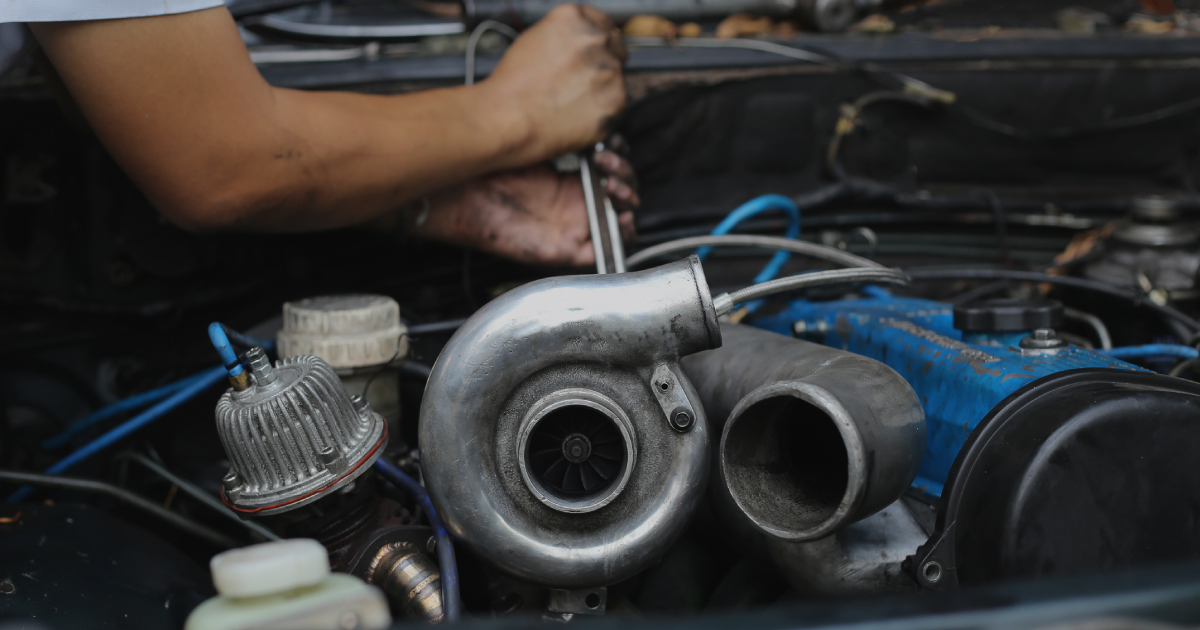Due diligence is important for every car buyer – not just to choose which vehicle to purchase, but to decide on the right warranty plan. When your basic manufacturer warranty expires, is it in your best interest to take out an extended warranty? The answer depends on your vehicle, finances, and priorities.
What Is A Vehicle Warranty?
A new or certified pre-owned vehicle warranty is a legal agreement that helps maximize your investment. When you pay for a new vehicle, manufacturers or dealerships often offer basic or extended warranties. These are contracts between you (the purchaser) the warrantor. The contract states that if you follow the rules of the warranty, the warrantor will cover the costs of certain maintenance and repairs on your vehicle for a specified amount of time.
A vehicle warranty means you can qualify for free repairs or part replacements from the warranty provider, over the time frame listed in the contract. Warranties can protect you from paying out-of-pocket for expenses such as unexpected part breakdowns, malfunctions, or defects. If the vehicle you purchased has a faulty part, the warrantor will pay for repair or replacement so you don’t have to. Warranties are wise ways to protect the substantial investment of a new car.
Basic Vehicle Warranties
Basic warranties automatically come with most new car purchases. Other names for the basic warranty are standard warranty, factory warranty, and “bumper-to-bumper” warranty. A basic warranty typically comes from the vehicle manufacturer. Most cover a new car for three years, or 36,000 miles. Most basic warranties cover all items on and in the vehicle, other than wear-and-tear items and general maintenance. These can include:
- Body panels
- Interior repairs
- Tires
- Brake pads and linings
- Windshield wipers
- Oil changes
- Tire rotations
Basic warranties only cover certain things. If a covered item has a defect or breaks down through no fault of the owner’s, the manufacturer will cover the costs of part repairs or replacements. Once the warranty expires, however, it is up to the owner to pay for repairs. An extended warranty is a plan an owner can purchase after the expiration of the basic warranty. It is an optional form of protection that can continue coverage for part repairs and replacements.
What Comes With An Extended Warranty?
An extended vehicle warranty typically provides similar coverage to the basic warranty. It will provide coverage after the basic warranty expires, at three years or 36,000 miles. Most extended warranties protect against electrical or mechanical malfunctions for an additional 20,000 miles or more. As in a basic warranty, the warrantor will pay the costs of fixing certain parts, saving the vehicle owner money if something breaks down. An extended warranty’s reach will depend on the company providing coverage.
A typical vehicle contains over 5,000 parts. Most basic and extended warranties do not cover every single part. Instead, they cover specific items, listed in the terms of the warranty. It’s important as a purchaser to read the fine print of an extended warranty before buying. It may not be worth the investment if it offers very limited coverage, or if it has many loopholes that could enable the company to get out of paying you. Most car dealers can give you the details on an extended warranty when you purchase the vehicle.
Is An Extended Warranty A Good Investment?
For some drivers, the basic warranty is enough to offer peace of mind at a lower price. Yet if you are truly nervous repairs may be necessary, you may wish to extend your basic warranty for an additional 20,000 miles or so. Extended warranties are an additional cost at the time of purchase that could be worth the investment. However, you are gambling that the money intended to go toward repairs will pay for a plan you’ll never use.
Depending on your financial situation, it may be more beneficial to take the dollar amount of the extended warranty and put it in a savings account in case of vehicle emergencies. That way, if nothing goes wrong with your car, you can use the money toward something else. If you invest it into a warranty, you spend the money whether your vehicle experiences breakdowns or not. If you’d prefer to have longer-lasting peace of mind about vehicle repairs, however, an extended warranty program could be an ideal solution. Compare quotes and options from different providers to find the best deal for you.
Other Vehicle Warranty Options
The basic and extended warranties are not your only options as a driver. Depending on what vehicle you purchase, the manufacturer may offer more robust protection plans. Luxury brands often have warranty options that last longer and for more miles than typical contracts. Other car companies have extended their warranties to attract more buyers. Hyundai’s basic warranty, for example, covers the vehicle for five years or 60,000 miles.
Regardless of which manufacturer you go with, you may have additional warranty options available to you. Most manufacturers permit buyers to take out more than just the basic warranty, if they wish. An adjustment warranty from the dealer can cover small issues within the first 90 days of purchase, such as leaks, alignments, or rattling noises. A powertrain or drivetrain warranty can cover the engine and mechanical parts of the vehicle (this comes with most basic warranties). A corrosion or rust warranty can cover the cost of repairs due to metal deterioration.
If you’re afraid of your new car encountering costly problems, lay your fears to rest with the right warranty plan. Consider your priorities and budget to determine if an extended warranty is worth your while.
I’m a kid at heart disguised as an auto researcher and business owner. I’ve always enjoyed providing insight in the form of reviews (anime, video games, autos, etc.) When I’m not researching, I’m spending time with my family, driving my Dodge Challenger, riding my motorcycle, and finding new entrepreneurial pursuits.


 You can’t fully understand new car warranties and modifications without the Magnuson Moss Warranty Act. Passed into federal law in 1975, this act forces consumer product manufacturers and distributors to provide clear and detailed information about warranty coverage. It also gives consumers an outlet to seek financial remedy for breach of warranty. The Magnuson Moss Warranty Act has a clear provision prohibiting vehicle manufacturers from forcing buyers to only use name-brand vehicle parts.
You can’t fully understand new car warranties and modifications without the Magnuson Moss Warranty Act. Passed into federal law in 1975, this act forces consumer product manufacturers and distributors to provide clear and detailed information about warranty coverage. It also gives consumers an outlet to seek financial remedy for breach of warranty. The Magnuson Moss Warranty Act has a clear provision prohibiting vehicle manufacturers from forcing buyers to only use name-brand vehicle parts.
